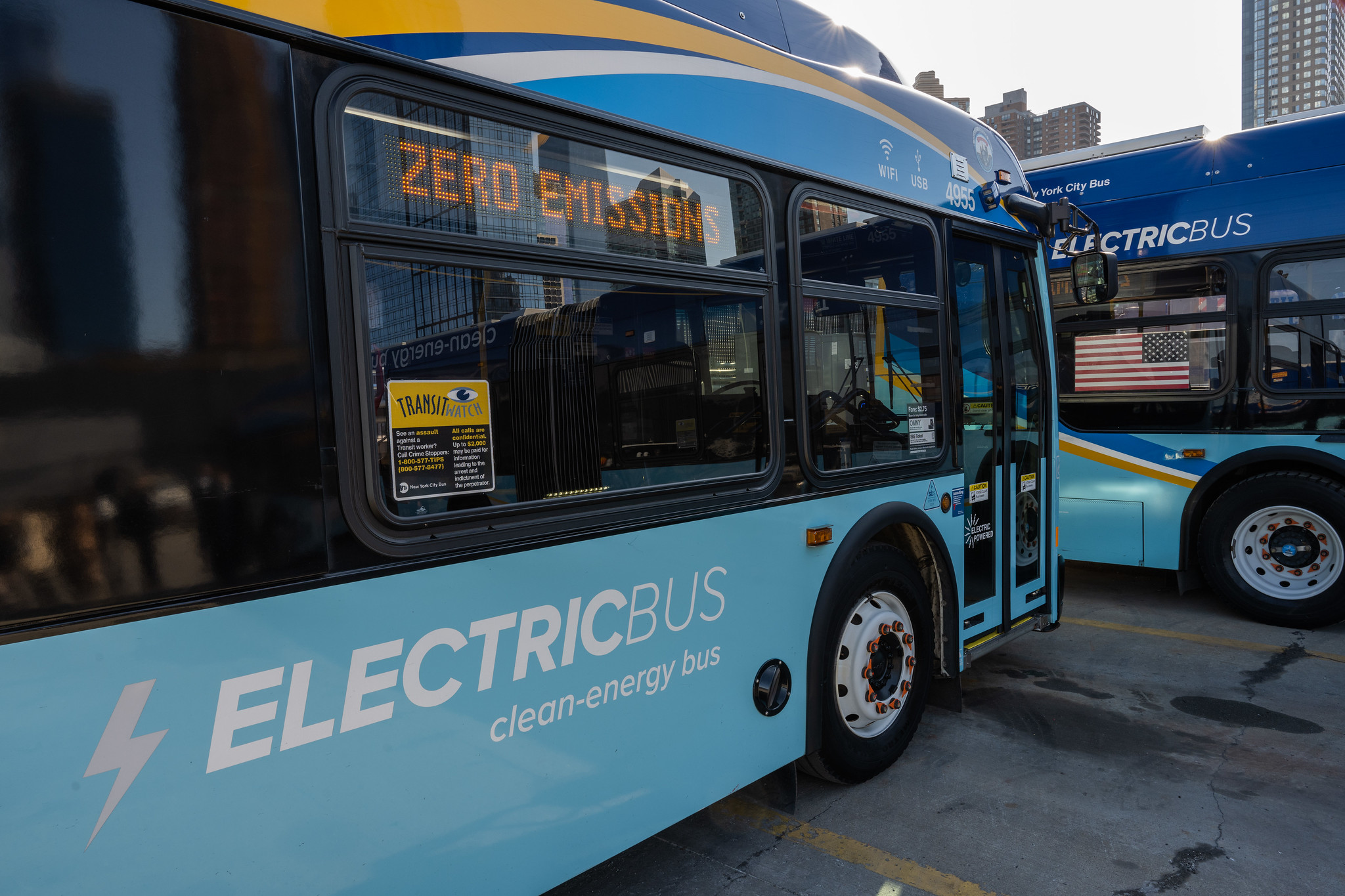This relationship lacks a spark.
The MTA might have to delay accepting an order of 205 electric buses due to arrive in October if the manufacturer can't fix a number of reliability issues.
The 60 New Flyer electric buses that the MTA has already put into service are extremely unreliable because batteries overheat or fail to fully charge, according to a report handed to the MTA Board on Monday by an independent engineer who oversees capital projects. The engineer also noted that there are ongoing questions about whether the batteries can actually last for eight years as they're supposed to.
The reliability issues mean that the electric buses aren't as available for a full day of service as the agency's standard diesel buses, and also break down much more frequently.
Only 60 percent of battery-electric buses are typically available for a full day of service, compared to 91 percent for diesel buses. And the number of miles a bus can travel before needing major repairs on average is just 2,111 miles for electric buses — and 13,000 miles for standard diesel buses.
And it's not about the manufacturer; the diesel buses are also built by New Flyer.
MTA officials also noted that it isn't just the batteries that are failing on the buses.
"We get a lot of calls on the road [about] electrical components," said Daniel Cardoza, the chief maintenance officer at the MTA's bus division. "They're all electrified now, so the air brake systems work with an electric compressor and the electric compressors are failing on the road."
The MTA has committed to meeting the state's mandate to have a fully electric fleet by 2040, and has included plans to order 500 electric buses in the 2020-2024 capital plan and the 2025-2029 capital plan. The agency also needs to get the timing right to retire buses every 12 years, and if the electric buses are not ready to roll, it will need to press older buses into service past their usual lifespan.
This is because oversight engineer noted that if the MTA sticks to its policies of "not accepting buses until all technical and quality issues are resolved," it could mean the agency will not accept delivery of 205 buses due in October.
"You have got to have buses that aren't going to break down," MTA Chairman and CEO Janno Lieber said in perhaps the understatement of the year. "So you have to figure this out through the testing and commissioning process."
The MTA is hardly the only transit agency that is finding battery-electric buses may not be fully ready for primetime. But there's a limited pool of suppliers the MTA can choose from while it continues to put the New Flyer buses through in-service testing.
"The whole nation is moving in this direction and it's created a lot of pressure on the industry," said Lieber. "We're operating in a dynamic environment where the technology and manufacturing quality is going 100 miles per hour, and where manufacturing capacity and the number of manufacturers in the industry is not where it needs to be. But we're working with some known New York State manufacturers [such as New Flyer], so we're hoping they can sort this out."






